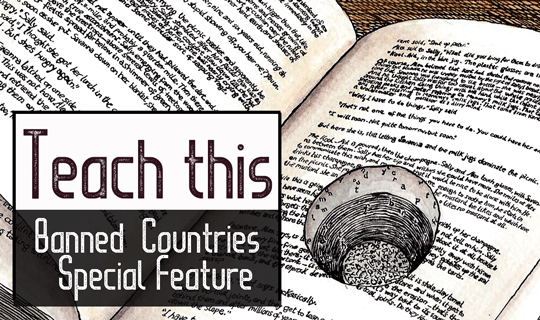Welcome to Teach This, Asymptote for Educators’ answer to the current issue’s Banned Countries Special Feature. We believe that the classroom is the perfect setting for young people to be exposed to diverse, contemporary voices, both allowing them to challenge their assumptions and to engage them with living literature… a conversation in which their own voices matter. To that end, Asymptote for Educators has launched this weekly blog series in which global educators share how and why they would teach the feature’s articles. We hope you and your students enjoy!
Are you an educator with your own lesson plan ideas? Teach This – Banned Countries Special Feature is currently open for submissions. Email education@asymptotejournal.com for more information.
While the work of Ubah Cristina Ali Farah is always situated between two cultures—Somali and Italian—it provides a point of access for students to learn about oral traditions, because despite the author’s long residencies outside of Somalia, these traditions remain present in her writing. Their ubiquity is testament to the very nature of oral stories, which creep into our lives unannounced and perhaps unnoticed, and travel with us. This is how they survive; this is how we survive.
The activities below focus on Ubah Cristina Ali Farah’s use of the Somali oral tradition and the question of personal identity in the context of stories that are passed down and retold, and which have become part of the socio-cultural fabric of our being. Besides offering an introduction to these topics, the lesson provides practice for analysis of a literary text and use of a secondary source to enrich our understanding of literature.


